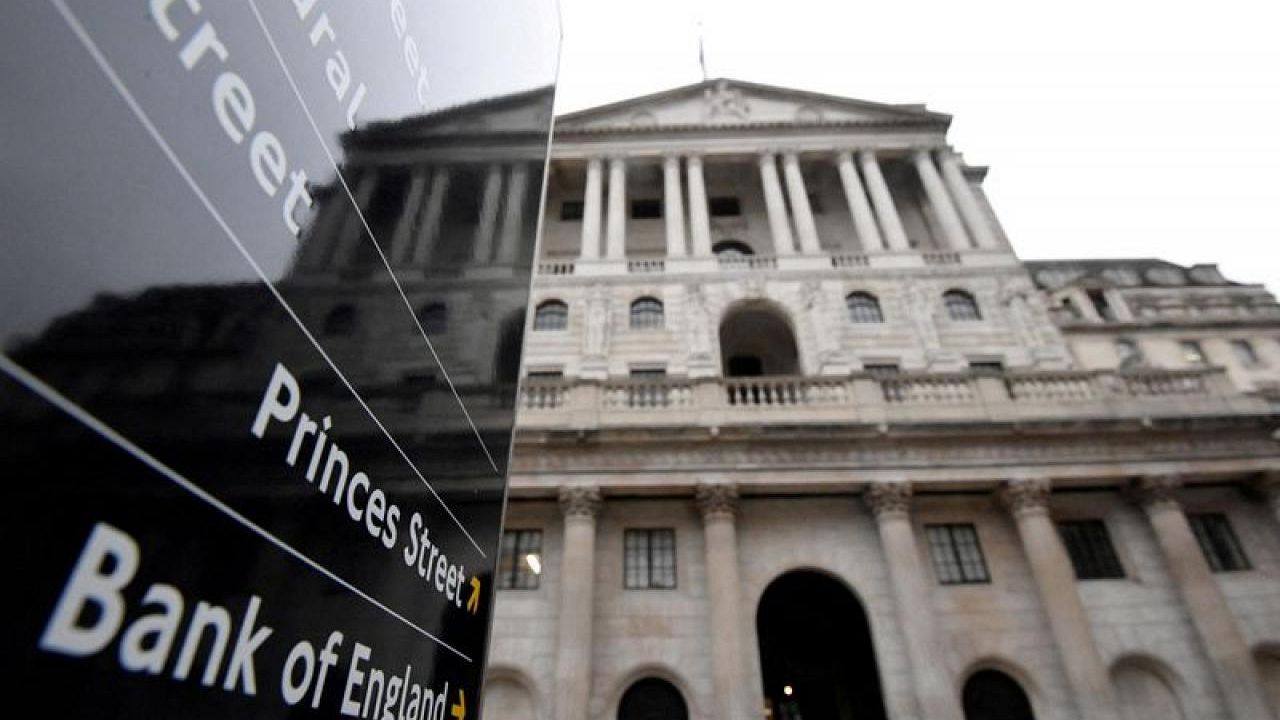The Bank of England raised interest rates to 0.5% on Thursday, with nearly half of its policymakers in favor of a higher rise to contain runaway price pressures, and the central bank warned that inflation will soon exceed 7%.
In a decision that caused an unexpected division within the institution, four of the nine members of the Monetary Policy Committee of the Bank of England (BoE, for its acronym in English) supported raising interest rates by half a percentage point, to 0.75%. Had it gone ahead, it would have been the biggest rise in borrowing costs since the BoE gained operational independence 25 years ago.
A majority of committee members, including Gov. Andrew Bailey, voted for a 0.25 percentage point increase.
Sterling rose two-thirds of a cent against the dollar after the decision, to exceed $1.36, its highest since January 20. UK government bonds were selling off and the 10-year yield hit its highest level since January 2019.
“While a quarter point hike may have a limited impact on most businesses, many will see consecutive rate hikes, and the fact that four members of the Monetary Policy Committee vote for a rate hike more significantly, it is a leap into a sustained period of significant monetary tightening,” said Suren Thiru, head of economics at the British Chambers of Commerce.
The decision comes after the rate hike in December, which marks the first consecutive increases in the bank interest rate since 2004 and reflects the urgency of the members of the Monetary Policy Committee to demonstrate that they are aware of the growing crisis in the cost of living
The Bank of England said consumer price inflation, which stood at 5.4% in December, is likely to peak at around 7.25% in April, which would be the highest rate since the early days. years of the recession-ravaged 1990s, and it would be a long way from its 2% target.
On Thursday, British energy regulators raised the maximum bill for typical home use by around £700 to nearly £2,000.
In contrast to the approach taken by the European Central Bank, the BoE warned that a further “modest tightening” is in the works, though growth will be hit by global inflation in energy and goods prices.
“Given the current tightness of the labor market and continuing signs of further persistence of domestic cost and price pressures, all members of the Committee considered that an increase in the bank interest rate at this meeting was justified,” according to the statements. meeting minutes.
High inflation means that working households’ after-tax income will fall 2% this year and 0.5% next, while weakening demand will push unemployment to 5% in three years.
The Bank of England said it will start winding down its 895 billion pound ($1.2 trillion) quantitative easing (QE) program, allowing its vast portfolio of British government bonds to come out of balance sheet as they mature, while selling all of its much smaller stock of corporate bonds.
The pressure on prices looks set to persist for much longer than the BoE forecast in November, which tripled its wage growth forecast for this year to 3.75%.
Inflation a year from now looks set to remain above 5% based on the market outlook for interest rates. However, the Bank of England believes that investors have priced in too many rate hikes in the coming years, and expects inflation three years from now to be below target at around 1.6%.
NON -CONSENSUS DECISION
Bailey, his deputies Ben Broadbent and Jon Cunliffe, chief economist Huw Pill and outside Monetary Policy Committee member Silvana Tenreyro made up the majority who voted in favor of a 25 basis point rate hike.
The Bank of England said it recognized the risks of strong price pressures, but also the possibility of inflation falling faster than expected if global energy and goods costs fall as markets expect, rather than of the bank’s most prudent assumption.
They warned that a further rate hike could have an “outsized impact” on expectations of borrowing costs, which were already strong enough.
Lieutenant Governor Dave Ramsden and outside members Michael Saunders, Jonathan Haskel and Catherine Mann voted for a half percentage point rate hike.
“Monetary policy should be tightened further at this meeting to reduce the risk that recent trends in wage growth and inflation expectations become more entrenched and thus help bring inflation back to target on a sustainable basis. in the short term,” the BoE said of this group.
SALE OF BONDS
The Bank of England said it would start winding down its asset purchases, built up over the past decade in a bid to stimulate the economy in a process known as quantitative tightening (QT).
This process will begin next month, when a British government bond held by the central bank matures. The 27.9 billion pounds of the proceeds will not be reinvested, the Bank of England said, nor will future writedowns of “gilts” (British national debt securities), worth some 70 billion pounds in 2022 and 2023.
The Bank of England repeated its plan to consider actively selling gilts once the bank interest rate hits 1%.
It also announced that it plans to reduce its £20bn of corporate bonds to zero no sooner than the end of next year, by not reinvesting maturing bonds and a yet-to-be-announced sales schedule.

